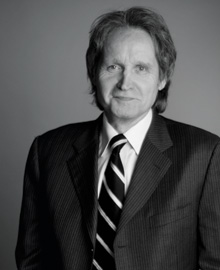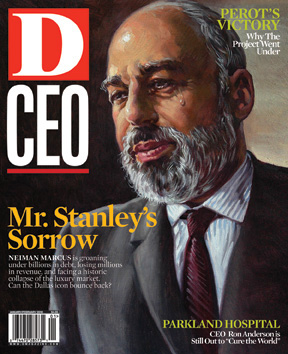For someone with an interest in business, having lunch with Stanley Marcus was always a treat. (He favored omelettes and L’Ancestral restaurant, and I thought both choices were the height of sophistication.) Besides helping give Dallas its global reputation for classy, well-dressed women, the late Neiman Marcus scion was an unrepentant champion of quality goods, imaginative marketing, and, above all, superb customer service.
No sale is a good sale unless the customer is completely satisfied, “Mr. Stanley” would say. To really determine what the public wants, he advised his buyers at the specialty luxury store, they should get out on the selling floor and listen. At one time a special telephone was installed at the downtown Neiman’s so that, if customers had a question or a complaint, they could call Mr. Stanley directly.
Partly as a result of such commonsensical—but uncommon—attitudes, Marcus’ influence on other businesspeople continues, well after his death in 2002 at the age of 96.
I’ve been thinking about this lately because of our Neiman Marcus story (“Period of Adjustment”), and because one of Marcus’ key executives has written a book that brings to life his old boss’ tastemaking, sales ability, and, yes, showmanship.
Titled Stanley Marcus: The Relentless Reign of a Merchant Prince, the new book by Thomas E. Alexander reminds us that, in addition to everything else, Marcus was a demanding taskmaster with perfectionist standards. But it was also his freewheeling creativity, his unusual accessibility to press and patrons, and his rock-solid consistency that put Neiman Marcus on the international retailing map.
Marcus’ “Fortnight” celebrations—which highlighted the products and folkways of a foreign country each October—started out as a scheme to boost store traffic during a traditionally slow retailing month. But they wound up galvanizing the entire region with community-wide cultural, educational, and social activities. Similarly, Mr. Stanley’s annual His and Her Christmas gifts (a pair of camels one year, Chinese junks another) attracted unimagined renown for their audaciousness and spirit.
As Diana Kunde’s cover story this month points out, Marcus presided over far fewer stores than today’s struggling Neiman Marcus Group, which no longer is owned by the Marcus family but by two private-equity groups. Nonetheless, you have to wonder whether Neiman’s current operators have done all they can to nourish the “specialness” of this Dallas retail landmark. Are they consistently listening to their customers, for example, as Mr. Stanley advised? Are they truly insisting on uniqueness in their merchandise? Are they being as imaginative as they possibly can in their advertising and promotional efforts?
The luxury market is evolving, yes, and there was only one Stanley Marcus. But the thing is, the business philosophy he espoused is timeless. Here’s hoping the current Neiman’s leadership, and other retailers who claim to follow Marcus’ credo, will read Alexander’s book carefully—and then re-dedicate themselves to Mr. Stanley’s example.






